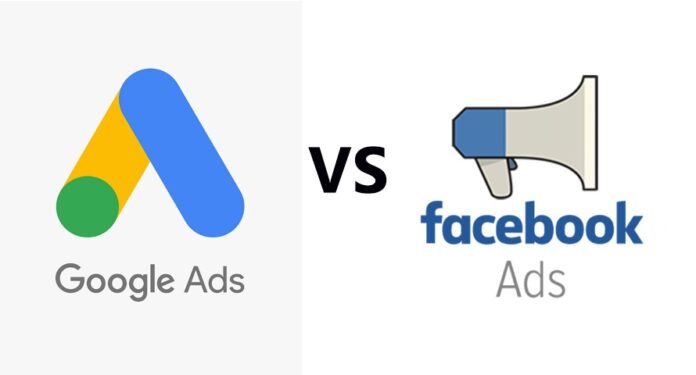Building Today columnist Andy Burrows — The Trades Coach — presents the pros and cons of Google and Facebook advertising, and which option might be better suited for your business.
When developing a digital marketing strategy to help with lead generation, a common question I hear often is, “should I use Google ads or Facebook ads?”
The answer really depends on what type of people you are looking to attract to your business, where they are in their buying journey, and the type of work you do.
Both platforms have their strengths and weaknesses, and the choice between them should be based on your specific situation.
In the broadest terms, Google ads help you find new customers; Meta ads (Facebook/Instagram) help new customers find you. That may be a subtle difference but it’s an important one.
One is around active search (Google) and the other is about building a brand and engaging with potential customers. One is focused on need while the other is about want.
To help explain this a bit deeper, here’s a comparison to help you decide where to focus:
Google ads
• Intent-based advertising. Google Ads are primarily search-based, meaning users actively search for products or services using keywords. This results in a higher likelihood of reaching users with a strong intent to purchase.
This is particularly so when the searcher has a high need for a service. Something may be damaged or unsatisfactory, and is causing them frustration.
• Keywords. You can target specific keywords related to your business, allowing you to connect with users searching for exactly what you offer.
Understanding your target market really well, and what they are likely searching for, is important to make the best return on Google ads.
• Variety of formats. Google ads are primarily text-based ads, but also offer other formats, such as display ads and video ads.
• Local targeting. You can target specific geographic locations, making it ideal for local businesses. Targeting in other ways is better done with Meta ads however.
• Expense. Google ads are more expensive than Meta ads, and competition for some popular keywords can drive up cost quite quickly.
However, you have control over your budget, and can set daily spending limits.
• Landing pages. It is important to have a good web site landing page where searchers end up after clicking on your ad. If they have expectations based on what your ad says, but the web site has a conflicting message or feel, you may turn the searcher off from proceeding further.
Meta ads (Facebook and Instagram)
• Audience targeting. Meta Ads are the best in audience targeting, allowing you to reach users based on demographics, interests, behaviours, and more.
Meta knows a huge amount about their (nearly) three billion users — what interest you have, content consumed, beliefs, values and more. It’s scary — but useful from a marketing perspective.
This is particularly useful for brand awareness and reaching a wider audience. You can also build lookalike audiences based on key features so your ads can be put in front of a bigger number of target customers.
• Visual platforms. Facebook and Instagram are visual platforms, so it’s great for promoting visually-appealing products or services through image and video ads.
Visual ads are generally easier to consume by an audience. However, it is important to produce attractive content to stand out from the crowd.
• Retargeting. You can retarget users who have interacted with your web site or app, which can be highly effective for conversion campaigns. If you have been stalked with ads after visiting a web site, you’ll know what I mean.
• Budget. Meta Ads can work with smaller budgets, making it accessible for businesses of all sizes. They are generally cheaper than Google, and so you can make your advertising dollar go further.
• Lead ads. It is possible to use Meta ads without having a web site by using their lead ads format — which effectively provides a mini landing page to deliver further messaging. However, It’s still recommended to have a good web site.
Summary
Google Ads are often better for businesses looking to capture users with a high need and intent to purchase, while Meta Ads are ideal for building brand awareness, reaching a specific audience, providing trust-building information, and engaging with users on a social platform.
Google ads may work faster and attract people with a more urgent intent of purchase. Meta ads work better with engaging with people who are in the earlier “awareness” and “research” modes of their journey.
However, it can be a better approach to treat the platforms as complementary, rather than adversarial. Many businesses find success using both platforms in tandem to achieve different marketing objectives.
Ultimately, it’s essential to consider your goals, target audience, and budget when deciding which platform to use — and you may also benefit from A/B split testing to determine which platform performs best for your specific campaigns.
If you want some help in reviewing your marketing activities, book in for a complimentary marketing audit with me to discuss some changes you should consider.
Email me at [email protected] with the subject line “Marketing Audit”.




